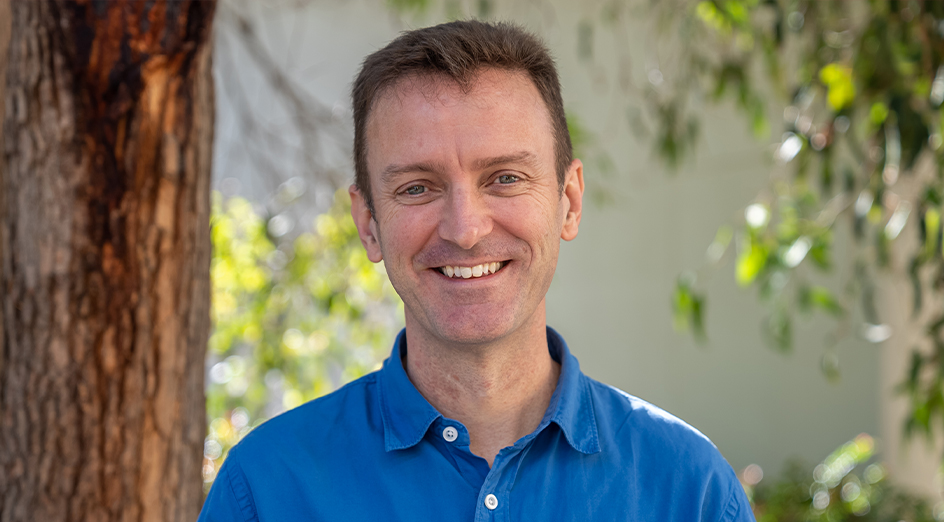Two coastal researchers at The University of Western Australia have been announced as Premier's Fellows.
The Premier’s Science Fellow program was established by the WA Government to attract leading scientists and researchers in priority areas of scientific research to the State.
Western Australia’s coastal resilience and the role of its protected areas have lured sustainability expert Professor Graeme Cumming to UWA as a Premier’s Science Fellow.
Professor Cumming, a Rhodes Scholar from Zimbabwe, was most recently Director of the ARC Centre of Excellence for Coral Reef Studies at James Cook University in Townsville, Queensland.
 Image: Professor Graeme Cumming.
Image: Professor Graeme Cumming.
He will work with Dr Abbie Rogers, from UWA’s School of Agriculture and Environment and Oceans Institute and Co-Director of UWA’s Centre for Environmental Economics and Policy, who was also announced as a Premier's Early-to-Mid-Career Fellow.
Professor Cumming will lead a four-year project to examine the role of protected areas in building coastal resilience and sustainability in the face of climate pressures.
“When you set an area aside for biodiversity, you don’t just influence that area locally – you also set in train a lot of other things: you change the way that people think about that area and you impact potential economic opportunities,” Professor Cumming said.
“With expansion of the protected areas scheme in WA and also the potential risks of climate change, protected areas may be an important source of coastal resilience in this State.
“Our future rests on better understanding the interface between humanity and ecosystems – what we do to them and how we respond to changes in them – and I think coastal resilience is going to be a massive issue for WA.”
In 2019, the WA Government announced a plan to create five million hectares of new national and marine parks and conservation reserves across the State over five years.
Dr Rogers will lead a project working with State and local governments to help prioritise investment in coastal management with a focus on addressing coastal hazards.
“Prioritisation tools will enable coastal managers to weigh up the costs and benefits of different options that can improve coastal resilience,” Dr Rogers said.
“It will integrate not only the financial costs and benefits of management outcomes, but also the social and environmental values that are important for coastal communities.”
Professor Cumming said the opportunity to move to WA and join the UWA research community had appealed for many reasons.
“The people here are very open to building new linkages and connections, which is wonderful for generating interdisciplinary research,” he said.
“There is a huge fondness in WA for the natural environment and the northern coastline is one of the most pristine in the world.
“With nature under threat in so many places around the world, uniquely here there is not only an opportunity to look after and conserve biodiversity but also to develop meaningful relationships between people and the land into the future in ways that have been broken or damaged elsewhere.”
Dr Rogers said she was looking forward to working with and learning from Professor Cumming.
“The Fellowship not only promotes academic innovation but also emphasises the importance of investing time to convert research outcomes to coastal stakeholders and the wider community.”
